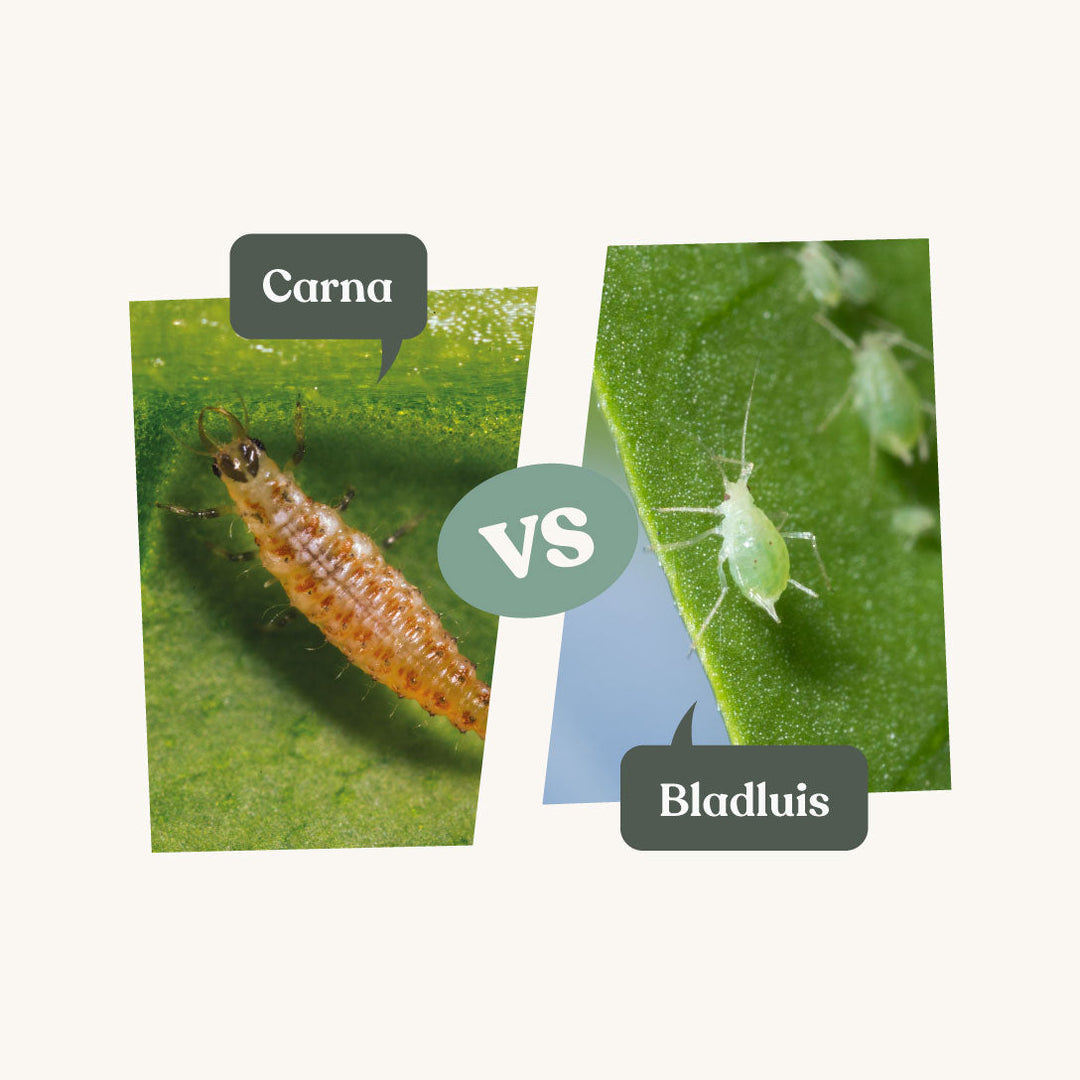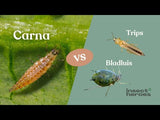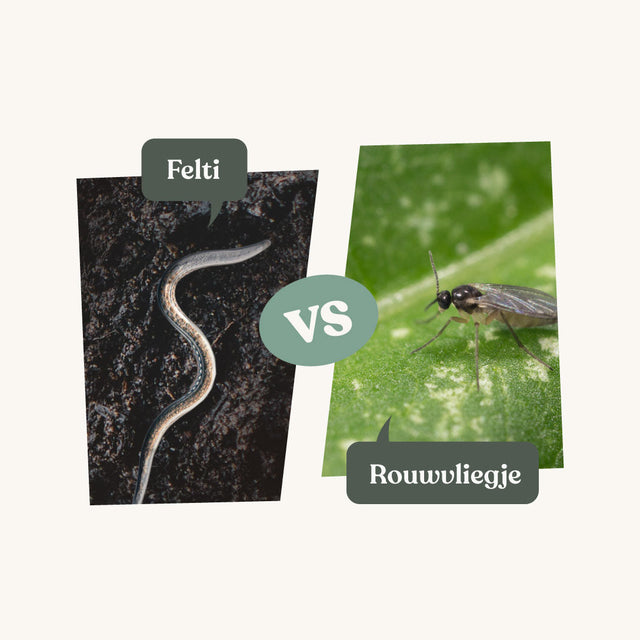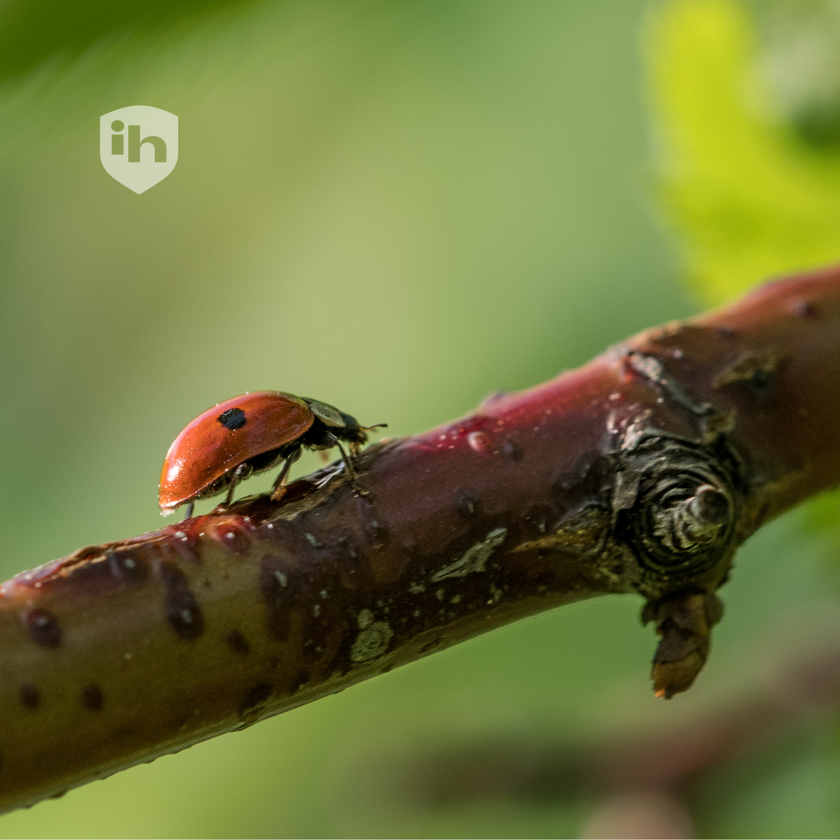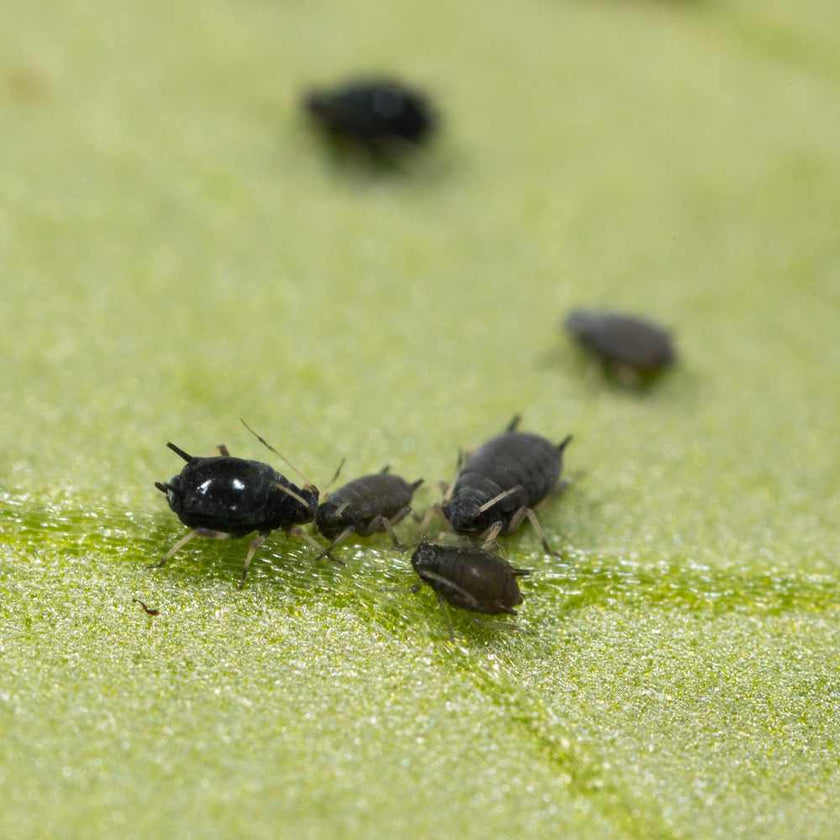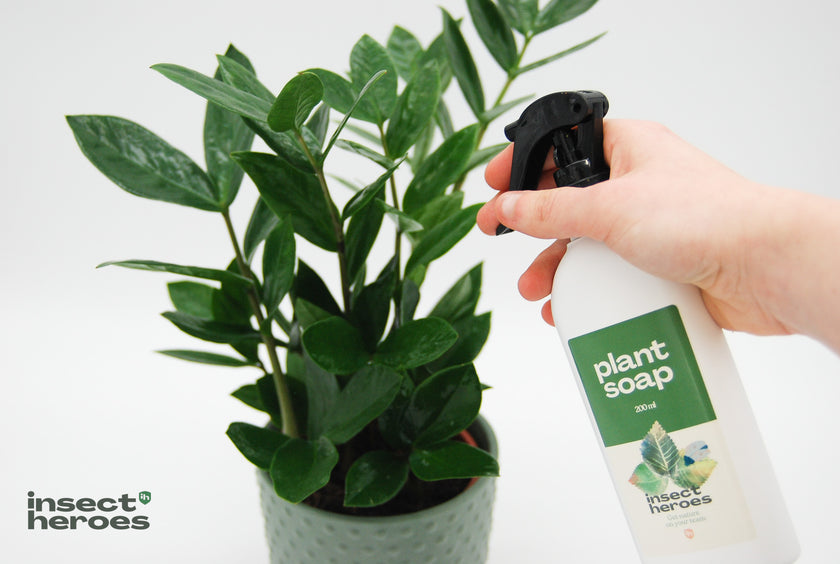Carna - Aphid control
- Regular price
- €17,95
Carna is the natural enemy of various types of aphids such as the green peach aphid, black bean aphid or cotton aphid.
1 sachet comes with 3 distribution boxes to easily distribute the Insect Heroes over the plant.
Free delivery from €20 within the Netherlands. Standard shipping costs are €2.95
Ordered before 3:00 PM on working days, shipped the same day
Package late? Do not panic! The Heroes can take a beating.
Product information
Recommendations
Irski - against thrips
Preventive control of thrips larvae- Regular price
- From €11,95
Felti - against fungus flies
Combats fungus fly larvae in the potting soil- Regular price
- From €11,95
Puncta - against aphids
Ladybird larvae for trees, shrubs and hedges- Regular price
- From €18,95
Why Insect Heroes?
Durable
It is the most natural pest control available
Effective
They only attack the unwanted critters and leave the rest alone
Amazing
See with your own eyes how nature does its work
Protective
Protect bees, butterflies and other beneficial insects































